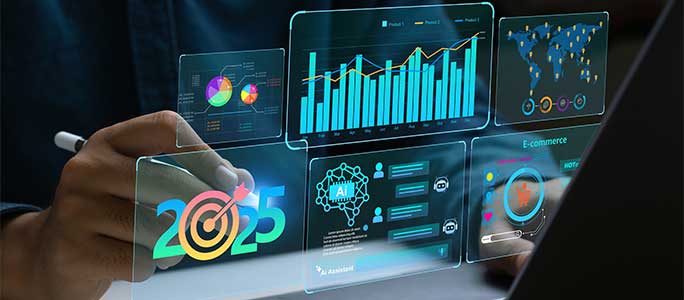In the part I of this two-blog series, we got familiar with the definition of process manufacturing, the unique challenges such businesses face, the need for a specialized ERP software for the process manufacturing industries, and how it is the most plausible solution for them.
The second and final part of this series deals with what’s hot and happening in the ERP arena, especially for process manufacturing sector, and what should be a buyer’s focus while selecting one for his business. Continue reading:
Latest trends in ERP
In near future, the utility of an ERP system won’t be judged on the variety of modules it offers, but on how well those modules adapt to the change in technology or business environment.
Considering the insane market competition and growing customer demand, ERP solutions are consistently evolving to become more powerful, more affordable, and less complex.
According to a recent research by panorama consulting, Cloud systems, mobile access, Artificial Intelligence (AI), data analysis and web store integration will be at the forefront in the days to come.
Some of the latest trendsetters in the ERP landscape are Cloud Platform, Business Intelligence, Big Data Analysis, Web-Store Integration, Mobility, HANA, Warehouse Management System, etc.
What should the buyer’s focus be?
A full-featured functional ERP set handles everything; right from Product Development, Formulation, Planning, and Procurement to Production, Quality, Compliance, and Sales & Finance.
If you are into core manufacturing business, then all the below modules of an ERP come handy in managing the flow of your processes. Let’s have a look at the scope of an ERP system’s application:
Formulation: A comprehensive Formula Management system includes effective version controlling, automatic formula sizing, multiple units of weight and volume for ingredients, instant rollback capabilities, and anytime, anywhere material substitution.
Production: It virtually consolidates batch information to boost efficiency and reduce gap between planned and actual production operations. The unique functionalities keep you a step ahead in your manufacturing capabilities and processes.
Compliance: Owing to the stringent regulatory mandates by the government, it becomes imperative to adhere to them and ERP software’s functional features allow greater collaboration with the necessary paper work keeping you free to focus on much important issues.
R&D: Brings pace, power, and dependability to introduce innovation faster and cheaper. It has the desired flexibility to meet your specific needs of experimentation.
It also cuts down man-hours spent on mind-numbing, error-prone manual calculations and fetches useful information quickly and accurately.
MPS/MRP: Master Production Scheduling (MPS) focuses on planning on part of the whole production process. It is accountable for the forecast, production plan, and other significant considerations such as backlog, availability of material, and availability of capacity.
Whereas, MRP uses and processes data from BOM, inventory and MPS to calculate the future requirements for materials.
Quality Control: Ensures tight control over the movement of material as per cGMP norms. Well-defined QC tests applicable at different phases of production, bi-directional traceability of materials, etc. ensure smooth audits and easy recalls.
Finance & Accounting: An ERP software helps you derive a cost that is beneficial for the company and acceptable to the customer.
It has advanced tools for granular drill down to closely monitor and control your costs. So, say goodbye to mismatched data and audit nightmares as you get real-time financial insights and analysis reports.
How to select the right ERP for your business?
In the process of selecting the best suitable solution for your business, you encounter a number of issues concerning a fruitful, result-oriented solution.
You just need to go ahead in a planned step-wise manner. Ensure the following steps for rewarding and long-lasting association with the ERP solution.
- Review and analyze the current scenario
- Plan and prepare for the implementation in advance
- Select the right vendor based on product offering, budget and customization
- Always ask for technological modifications
- Regulate the change management
- Have a reliable data backup
- Insist on rigorous training and documented knowledge transfer
- Make sure that there is prompt post-implementation support
We aimed to cover all the aspects that are there to be considered by a process manufacturer while buying an ERP. Hope this detailed guide proves helpful in your journey to get the best ERP solution for your business.
Meanwhile, you can also go through a white paper by industry experts of BatchMaster Software on ERP software selection guide for small businesses




















